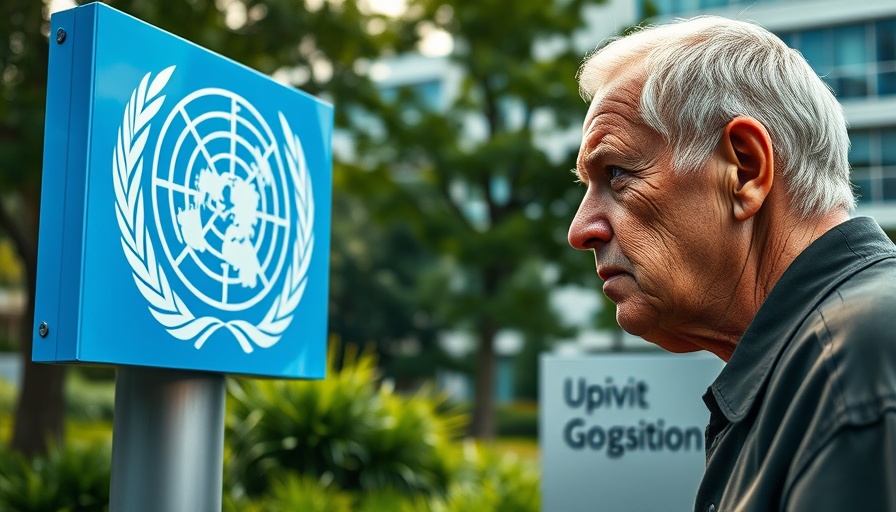
The Evolution of Light Therapy: More Than Just Skin Deep
Light therapy has gained traction in recent years, and it is not just a trend but a robust field of research. With innovators like Kris Sweeting, whose personal story spurred his journey into alternative medicine, light therapy has become a beacon of hope for many. After experiencing the challenges of living with vitiligo, Kris harnessed the power of narrowband UVB light and pseudocatalase cream to repigment his skin. His experience led him to establish EMR-TEK, where he develops advanced red light therapy panels that not only treat but promote overall health.
The Sun Sandwich Concept: A Holistic Approach to Skincare
One of the intriguing concepts Kris discusses is the “Sun Sandwich.” This involves layering different types of light exposure—morning and evening red light combined with midday sunlight. This approach aims to provide the body with the best of both worlds: the benefits of natural sunlight while minimizing risks associated with excessive UV exposure. According to Kris, reducing seed oils in the diet can enhance protection against sun damage while maximizing skin health benefits.
Are Tanning Beds Safe? Making Informed Choices
The question of tanning bed safety is a hot-button issue. While some consumers seek a sun-kissed glow year-round, experts warn against the increased risk of skin cancer associated with artificial UV exposure. Kris appeals to a more health-conscious approach by contrasting traditional tanning beds with his innovative red light therapy devices. His devices emit narrowband light that supports skin health while minimizing harmful effects, making it crucial for potential users to educate themselves before making a decision.
Beyond Skincare: The Role of Red Light in Health and Wellness
Research supports that red and near-infrared light can enhance mitochondrial function, which plays a pivotal role in cellular energy production. As we continue to understand how different wavelengths of light impact our health, therapies derived from Kris’s devices promise not only to boost skin appearance but also to elevate overall wellness. The Ultron device claims to safely deliver specific wavelengths (like 630, 670, and 830 nm) to help reduce inflammation and promote cellular repair.
Technological Innovations: The Future of Light Therapy
In addition to his skincare products, Kris's vision extends to the technological realm with the introduction of a UV-disinfecting robot. This innovation highlights a growing trend in using light therapy beyond aesthetics and into public health, especially in the post-pandemic world. The ability to disinfect viral DNA while moving seamlessly through homes can revolutionize how we approach hygiene and safety.
The Allure of Korean Face Masks: Science Meets Beauty
Kris’s skincare line also draws from phenomenon trends emerging from South Korea, where LED face masks are heralded for their rejuvenating properties. These masks use targeted light wavelengths alongside potent ingredients like CoQ10 and methylene blue to not only enhance skin appearance but also address underlying issues. This blend of science and beauty is becoming a cornerstone of modern wellness practices.
Advice for the Skeptics: Understanding the Science
As the wellness landscape evolves, there are inevitable skeptics. Understanding the mechanisms of light therapy can provide a clearer perspective. Kris emphasizes the importance of using scientifically-backed products, illustrating differences between true therapeutic devices and mere market hype. It’s essential for consumers to look for trusted brands and positive clinical data to navigate this burgeoning industry.
For anyone in Massachusetts exploring alternative medicine or wanting to optimize their skincare regime, Kris Sweeting's insights offer valuable guidance. Be sure to evaluate options, understand the technology behind them, and stay informed about innovations in light therapy. Armed with this knowledge, individuals can make enlightened choices that truly contribute to their well-being.
As you consider the role of light therapy in your life, think about the environmental attitudes and practices you can adopt. From exploring safe sun exposure methods to utilizing advanced technological solutions, the journey towards improved health adapts with our understanding. Take the next step, and embrace the power of light therapy for your overall wellness journey.
 Add Row
Add Row  Add
Add 




Write A Comment